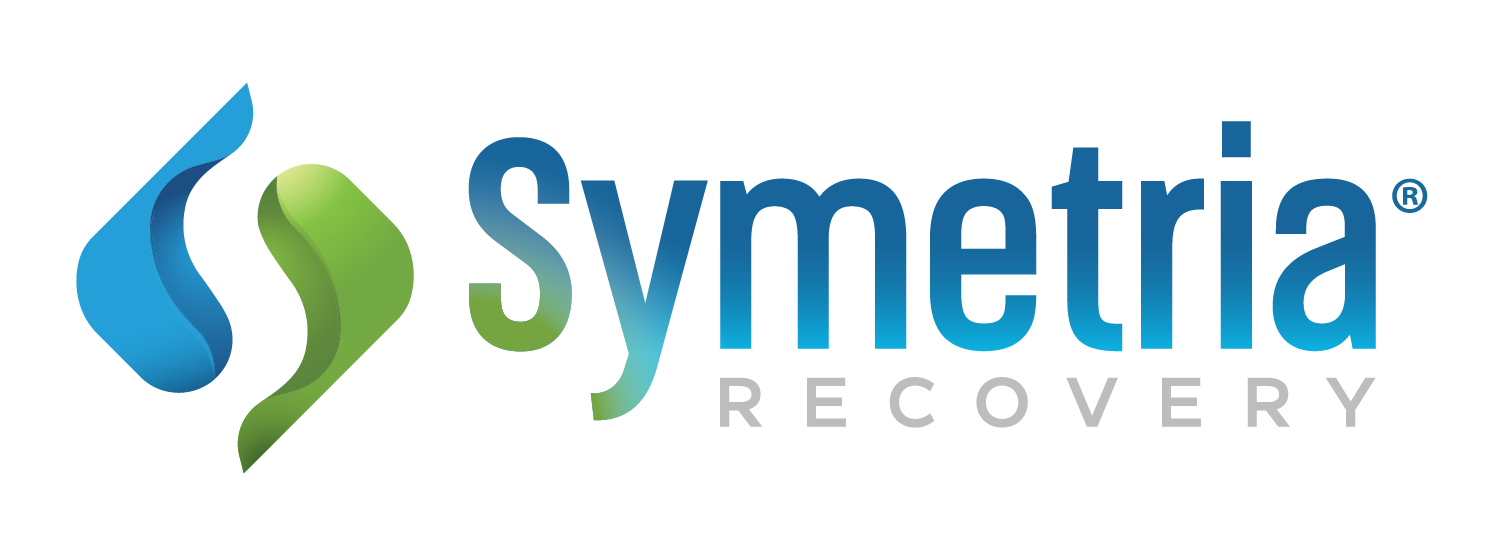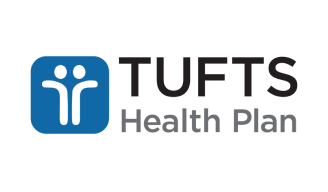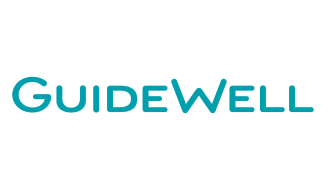Fort Worth, Texas, United States
Symetria Recovery Fort Worth Outpatient
Verified
Verified
This provider’s information has been quality-checked by Recovery.com’s Research Team for accuracy and completeness, including center verification through appropriate third-party organizations.
CARF Accredited
CARF stands for the Commission on Accreditation of Rehabilitation Facilities. It's an independent, non-profit organization that provides accreditation services for a variety of healthcare services. To be accredited means that the program meets their standards for quality, effectiveness, and person-centered care.
Provider's Policy
Treatment here is covered by insurance. Symetria Recovery is in-network and even "Blue Distinction" status (earned by the top 1% of medical specialists). Symetria is in-network with almost all insurance policies, including Magellan Health.
About Symetria Recovery Fort Worth Outpatient
At Symetria, healing begins the moment clients walk through the door—or connect virtually from the comfort of home. They specialize in addiction treatment and co-occurring mental health concerns. If clients seek immediate relief from opioid or alcohol withdrawals, Symetria offers medication-assisted treatment (MAT). They also offer an intensive outpatient program (IOP) that clients can participate in whether or not they choose to incorporate medication-assisted treatment.
Get Immediate, Judgment-Free Care
Symetria creates an environment that genuinely meets clients where they are, whether they’re just starting to notice a problem or seeking lasting support after residential treatment or detox. Their approach sees addiction not as a moral failure, but as a treatable brain disease. They combine Suboxone, Methadone, and Naltrexone with supportive therapies, including unlimited one-on-one counseling and psychiatry to address mental health concerns.
Craft a Self-Paced Recovery Experience
At Symetria, clients aren’t bound by traditional 12-step rules—instead, recovery is whatever clients craft it to be. Master’s-level therapists work with clients both individually and in group settings to address core issues like motivation, relapse prevention, and rebuilding relationships in ways that resonate with their beliefs and experiences. Clients look within themselves to address these issues at their own pace, because at Symetria, recovery is not a checklist.
Benefit from a Convenient Location & Schedule
Located conveniently near major roads and public transportation, Symetria is easily accessible. Without disrupting daily life, clients can easily access same-day treatment. Their on-site pharmacy offers MAT immediately, without the hassle of off-site pharmacy visits. And their dosing hours are designed to fit clients’ schedules with early morning availability on weekdays and weekends.
Read More

Insurance Accepted
Provider's Policy:Treatment here is covered by insurance. Symetria Recovery is in-network and even "Blue Distinction" status (earned by the top 1% of medical specialists). Symetria is in-network with almost all insurance policies, including Magellan Health.
Use Medication as a Recovery Tool
At Symetria, they harness the power of medication-assisted treatment to stabilize brain chemistry and reduce cravings, freeing clients up to fully engage in their lives. With less physical pain, fewer urges, and more mental clarity, MAT isn’t just a substitute substance, but a tool to confidently rebuild one’s life. And with the help of trained medical professionals, clients can taper off of their medication when the time is right.
Heal Together in Group Therapy
At Symetria, group therapy is at the heart of the recovery journey. They welcome clients to their virtual or in-person intensive outpatient program (IOP) surrounded by peers who truly get it, because they are walking the same path. In these powerful group sessions, clients share their stories and gain fresh perspectives. These real connections break down the isolation of addiction.
Receive Unlimited One-on-One Therapy
Unlimited one-on-one therapy is offered at Symetria, allowing for deep healing. Therapists can delve into each client’s individual history and challenges. Clients can also address underlying issues like trauma or co-occurring mental health conditions. Through consistent support, clients reduce the risk of relapse.
Find Flexible and Affordable Care
By allowing clients to maintain their daily routine and home life, treatment at Symetria feels achievable. While attending treatment in-person or virtually, clients can take anti-craving medication to help keep temptation at bay. Their programs are also structured to remain affordable, accepting many forms of insurance, while still receiving quality, impactful care.

Center Overview
Estimated Cash Pay Rate
Older Adults
Addiction and mental health treatment caters to adults 55+ and the age-specific challenges that can come with recovery, wellness, and overall happiness.
Executives
Executive treatment programs typically directly support the needs of people who manage businesses and may provide flexible schedules and office space to allow work during treatment.
Young Adults
Emerging adults ages 18-25 receive treatment catered to the unique challenges of early adulthood, like college, risky behaviors, and vocational struggles.
LGBTQ+
Addiction and mental illnesses in the LGBTQ+ community must be treated with an affirming, safe, and relevant approach, which many centers provide.
Men and Women
Men and women attend treatment for addiction in a co-ed setting, going to therapy groups together to share experiences, struggles, and successes.
Midlife Adults
For adults ages 40+, treatment shifts to focus on the unique challenges, blocks, and risk factors of their age group, and unites peers in a similar community.
Mild Disabilities
Adults with mild physical or intellectual disabilities receive treatment catered to their specific needs in a safe and clinically supportive environment.
Pregnant Women
Addiction and mental health treatment meets the clinical and psychological needs of pregnant women, ensuring they receive optimal care in all areas.
Professionals
Busy, high-ranking professionals get the personalized treatment they need with greater accommodations for work, privacy, and outside communication.
Veterans
Patients who completed active military duty receive specialized treatment focused on trauma, grief, loss, and finding a new work-life balance.

Treatment Focus
This center treats primary substance use disorders and co-occurring mental health conditions. Your treatment plan addresses each condition at once with personalized, compassionate care for comprehensive healing.

Care Options







Treatment
Specializations
Detox
Detox fully and safely removes toxic substances from the body, allowing the next steps in treatment to begin with a clean slate.
Chronic Relapse
Consistent relapse occurs repeatedly, after partial recovery from addiction. This condition requires long-term treatment.
Co-Occurring Disorders
A person with multiple mental health diagnoses, such as addiction and depression, has co-occurring disorders also called dual diagnosis.
Drug Addiction
Drug addiction is the excessive and repetitive use of substances, despite harmful consequences to a person's life, health, and relationships.
Heroin
Heroin is a highly addictive and illegal opioid. It can cause insomnia, collapsed veins, heart issues, and additional mental health issues.
Medication-Assisted Treatment
Combined with behavioral therapy, prescribed medications can enhance treatment by relieving withdrawal symptoms and focus patients on their recovery.
Opioids
Opioids produce pain-relief and euphoria, which can lead to addiction. This class of drugs includes prescribed medication and the illegal drug heroin.
Prescription Drugs
It's possible to abuse any drug, even prescribed ones. If you crave a medication, or regularly take it more than directed, you may have an addiction.
Approaches
Evidence-Based
A combination of scientifically rooted therapies and treatments make up evidence-based care, defined by their measured and proven results.
Individual Treatment
Individual care meets the needs of each patient, using personalized treatment to provide them the most relevant care and greatest chance of success.
Medical
Medical addiction treatment uses approved medications to manage withdrawals and cravings, and to treat contributing mental health conditions.
Personalized Treatment
The specific needs, histories, and conditions of individual patients receive personalized, highly relevant care throughout their recovery journey.
Therapies
1-on-1 Counseling
Patient and therapist meet 1-on-1 to work through difficult emotions and behavioral challenges in a personal, private setting.
Trauma-Specific Therapy
This form of talk therapy addresses any childhood trauma at the root of a patient's current diagnosis.
Online Therapy
Patients can connect with a therapist via videochat, messaging, email, or phone. Remote therapy makes treatment more accessible.
Rational Emotive Behavior Therapy
A type of cognitive therapy that identifies negative self-defeating thoughts and behaviors, rewriting beliefs to be positive, empowering, and present.
Couples Counseling
Partners work to improve their communication patterns, using advice from their therapist to better their relationship and make healthy changes.
Life Skills
Teaching life skills like cooking, cleaning, clear communication, and even basic math provides a strong foundation for continued recovery.
Medication-Assisted Treatment
Combined with behavioral therapy, prescribed medications can enhance treatment by relieving withdrawal symptoms and focus patients on their recovery.
Psychoeducation
This method combines treatment with education, teaching patients about different paths toward recovery. This empowers them to make more effective decisions.
Relapse Prevention Counseling
Relapse prevention counselors teach patients to recognize the signs of relapse and reduce their risk.
Substances We Treat
Alcohol
Using alcohol as a coping mechanism, or drinking excessively throughout the week, signals an alcohol use disorder.
Benzodiazepines
Benzodiazepines are prescribed to treat anxiety and sleep issues. They are highly habit forming, and their abuse can cause mood changes and poor judgement.
Chronic Relapse
Consistent relapse occurs repeatedly, after partial recovery from addiction. This condition requires long-term treatment.
Co-Occurring Disorders
A person with multiple mental health diagnoses, such as addiction and depression, has co-occurring disorders also called dual diagnosis.
Cocaine
Cocaine is a stimulant with euphoric effects. Agitation, muscle ticks, psychosis, and heart issues are common symptoms of cocaine abuse.
Drug Addiction
Drug addiction is the excessive and repetitive use of substances, despite harmful consequences to a person's life, health, and relationships.
Heroin
Heroin is a highly addictive and illegal opioid. It can cause insomnia, collapsed veins, heart issues, and additional mental health issues.
Opioids
Opioids produce pain-relief and euphoria, which can lead to addiction. This class of drugs includes prescribed medication and the illegal drug heroin.
Prescription Drugs
It's possible to abuse any drug, even prescribed ones. If you crave a medication, or regularly take it more than directed, you may have an addiction.
Synthetic Drugs
Synthetic drugs are made in a lab, unlike plant-based drugs like mushrooms. Most synthetic drugs are either stimulants or synthetic cannabinoids.
Aftercare
Experience
Personal Amenities
Activities
Accommodations
Food & Nutrition
Treatment
Value
V
K.A
We love hearing about your treatment experience
Help individuals and families seeking treatment by sharing your first-hand experience with this treatment provider. Review Guidelines.







































